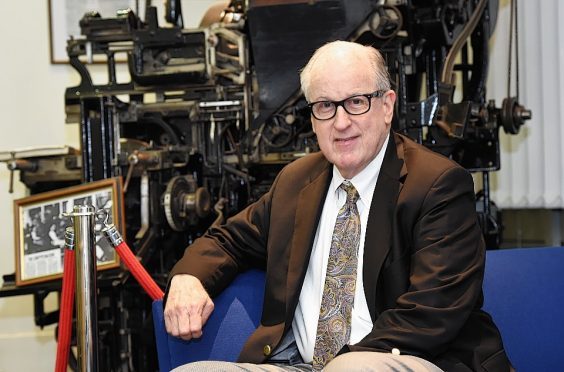The founder of a government body that galvanised industry and university collaboration in Ireland has urged Scotland to do the same to diversify and strengthen the economy of the north-east.
Dr William Harris was the founding director general of Science Fountation Ireland (SFI) which has been credited with attracting and retaining international technology firms such as Intel and Boston Scientific through brokering and funding research delivered by the republic’s universities in partnership with the firms.
Mr Harris believes more could be done in Scotland to capitalise on the research-intensive industries operating here but which base scientific operations in other parts of the globe.
He said: “You have a huge industry base here but they are not doing much research.
“Some of the companies do a lot of research in the US.
“Of the observations I have, when countries have a lot of oil, you get comfortable.
“You forget your most important asset is your people and their brains.
“In today’s economy it is even more important.”
There are several bodies and development organisations in Scotland aimed at brokering industry/university collaboration such as Interface and in Aberdeen the Oil and Gas Innovation Centre (Ogic). The newly established Oil and Gas Technology Centre (OGTC) will also focus research on key areas of North Sea specialisms such as small pools and sensor technology.
SFI, which was established in 2000, was allocated EUR650million (£548million) in its first three years to invest in IT and biotech which had been identified as key areas of potential to grow the economy. In 2006, the Irish Government doubled down on research and development (R&D) funding, allocating EUR3.7billion (£3.1billion) and widening SFI’s remit.
Mr Harris, an American with Irish ancestry, set out SFI’s priorities and led the development of successful collaborations between the universities and companies.
“We wanted to get a new way of working with universities and with industry so they work together in appropriate ways and add value to the county.
“You have to design are the incentives.
“What I found in the US is the industries were having trouble dealing with all the lawyers, slowing things down at the universities, making things really hard work on intellectual property (IP) issues.
“We could design a new model in Ireland.”
He cites how medical device giant Boston Scientific, which had established manufacturing facilities in Ireland, added value by connecting to the country’s research facilitites which ensured the location became more important to the company when pressures to move to lower costs centres emerged.
“They were supposed to be mostly manufacturing,” he said.
“But they had some problems they had to solve and they needed some help from the universities.
“We figured out how to help them with some of their research problems.
“They then became attractive at corporate headquarters because they were doing tings that were really important.
“So if there was a downturn they weren’t going to be cut.”
Key to the scheme’s success was basing the facilities where the collaboration took place physically on campus instead of separately, which ensured that it also encouraged a pipeline of talent.
He said: “You have all this capital invested and all this talent there.
“If you build new labs for a few years they are going to be absolutely spectacular.
“But then the people are going to age.
“The university has these young students going through all the time and you keep priming the pump with those young people.
“If you could make that work you would have a long-term solution. That is what they ended up doing.”
Mr Harris, who has now returned to the US and is establishing a similar model in Arizona, said hunger for economic diversificiation is felt across the world.
He said: “Diversifying the economy is becoming a common question everywhere.
“What you are asking is not unique or different. Everybody wants to figure it out.
“But there is no reason why Aberdeen can’t be a magnet for talent.”
